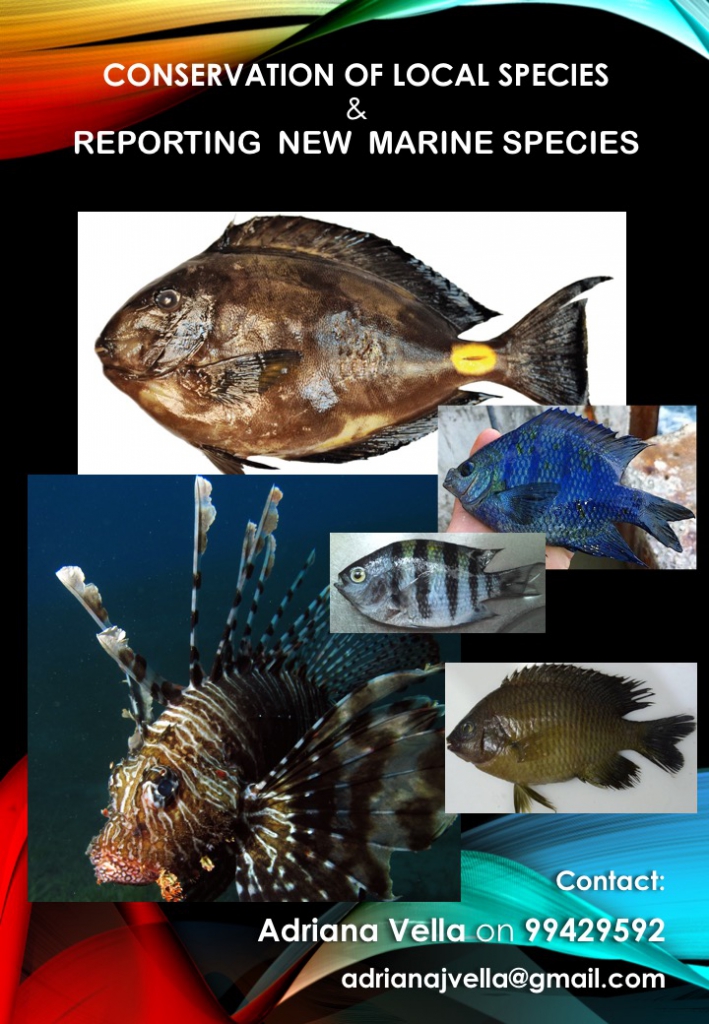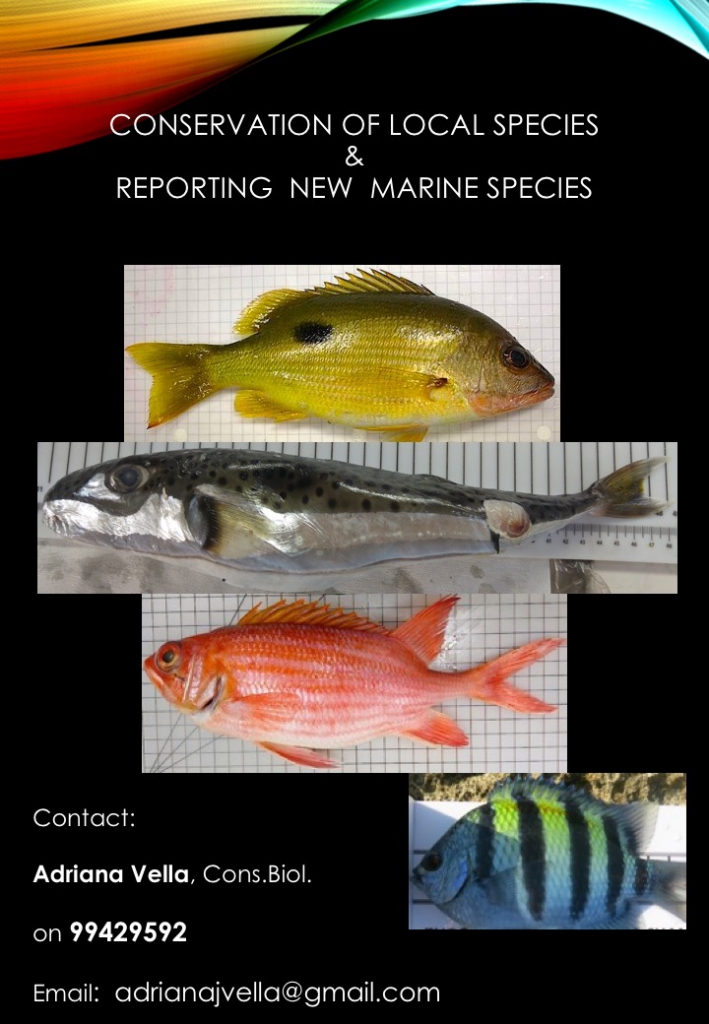BICREF volunteers assist the CBRG-UoM conservation projects which discover ways of improving conservation measures for Maltese biodiversity: Increasingly aliens are one problem that needs to be addressed through effective research and action.
Relentless research of our marine biodiversity continues to produce new discoveries on the species found in Maltese waters. The Conservation Biology Research Group of the University of Malta (CBRG-UoM) led by conservation biologist, Adriana Vella, Ph.D (Cambridge) has discovered another new alien species for the Mediterranean. The first record of the squirrelfish, Holocentrus adscensionis (Osbeck, 1765), in the Mediterranean Sea has been published in a scientific peer reviewed journal, authored by A. Vella, N. Vella and S. Agius Darmanin.
Other interesting scientific research work on the endangered dusky grouper and other serranid species has also been published after being presented at conferences and the International workshop on groupers, allowing for greater focus on the conservation needs of native reef fish which are increasingly being challenged by a rapidly changing marine environment. Among these changes there is the inflow of alien reef fish species, such as the recent alien longjaw squirrelfish which is a subtropical reef-associated species native to the Atlantic Ocean.
Conservation biology uses various research tools to understand the status of populations, species and habitats. The knowledge gained from such research is increasingly applicable and vital to improve management of natural resources and safeguard biodiversity, our natural capital. The CBRG-UoM has discovered numerous new species in Maltese waters including: Cocoa Damselfish, Dory snapper, Indo-Pacific sergeant, Sergeant major, African Sergeant, Lowfin chub, Niger Hind, Monrovia Surgeonfish, Indo-Pacific punctuated flatworm, Lionfish and Squirrelfish. Most of these scientific discoveries were not only first records for Maltese waters but were also first records for the Mediterranean Sea.
At the same time this research group has undertaken field research and also genetic investigations of the DNA barcode of these and hundreds of other local species strongly contributing to unique discoveries on local biodiversity.


This research was possible through the support of various entities including the University of Malta, fishermen, Maritime section of the Ministry of Transport Malta and the ngo BICREF. The research is also partially funded by the REACH HIGH Post Doctoral Grants. This project is part-financed by the European Union, Operational Programme II – Cohesion Policy 2014 – 2020 “Investing in human capital to create more opportunities and promote the well being of society” – European Social Fund.


